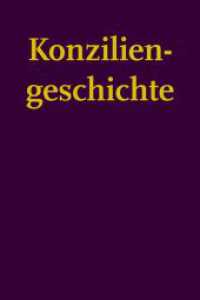- ホーム
- > 洋書
- > 英文書
- > Politics / International Relations
Full Description
Drawing on data from three different insurgent groups within the Cambodian conflict, the book shows how the social backgrounds of combatants and commanders cause them to pursue different strategies during a decade-long transition into various postconflict settings, thereby creating different "pathways to peace." By highlighting different vertical and horizontal ranks within the insurgent groups and the role of belligerents' resources and networks, this qualitative study tackles an imbalance in the current research on Disarmament, Demobilization, and Reintegration (DDR), which tends to focus on top-down planning and the technicalities of reintegration programs. It helps explain why conflict dynamics and path-dependencies differ among various social groups within the field of insurgency. By analyzing the social position, life courses and postconflict trajectories of various groups within the insurgency, the book emphasizes the diversity of transitions to peace and "brings the social back in."
The study is grounded in in-depth fieldwork conducted in Cambodia and its diaspora, including 168 firsthand interviews with ex-combatants from groups as diverse as Buddhist monks and Christian converts, intellectuals, powerful warlords, civil servants, and female communist soldiers. Using these details, the book not only builds a theory of the social structure and internal logic of armed groups, but also emphasizes the crucial importance of fighters' own narratives about their roles in society. Therefore, in addition to advancing a sociological perspective on post-conflict transitions, the study also provides the most detailed treatment to date of the social fields of the insurgents who fought in the civil war that followed the fall of the Khmer Rouge regime in 1979. These social fields continue to have a profound influence on Cambodian politics, even today.
Contents
Introduction
1. A Short History of the Cambodian Conflict and Peace Process
2. The Social Structure of the Insurgency
3. Leadership
4. Mid-Ranking Operators
5. Rank-and-File Soldiers
6. Blank Pages' Symbolic Reconstruction
7. Note on Female Combatants of the Khmer Rouge
8. The Diaspora
Conclusion







